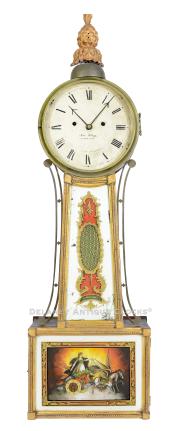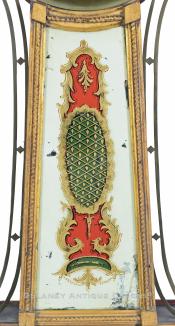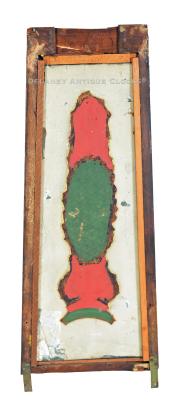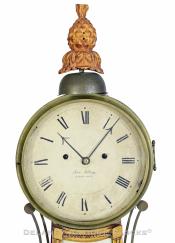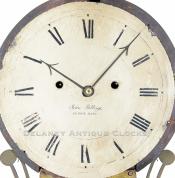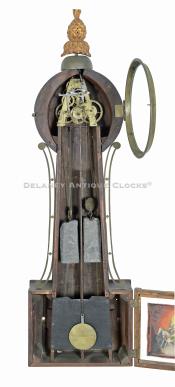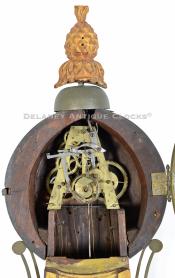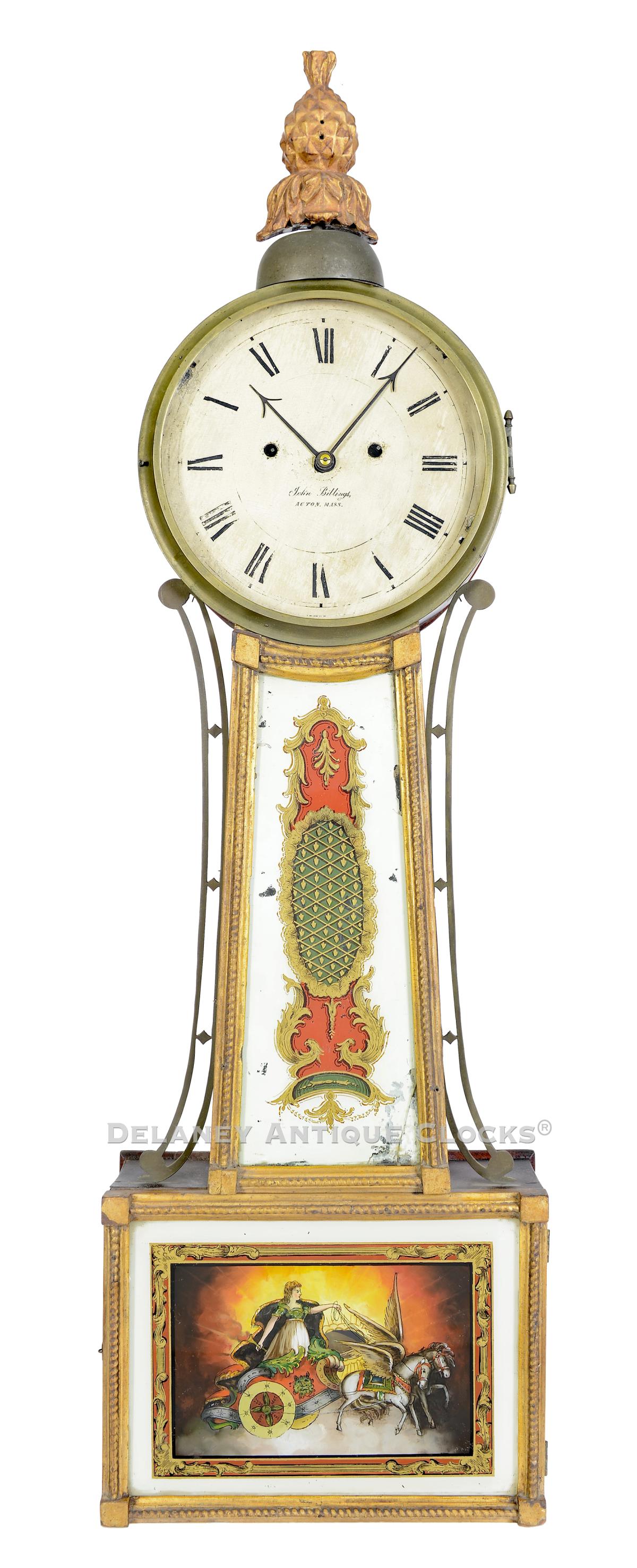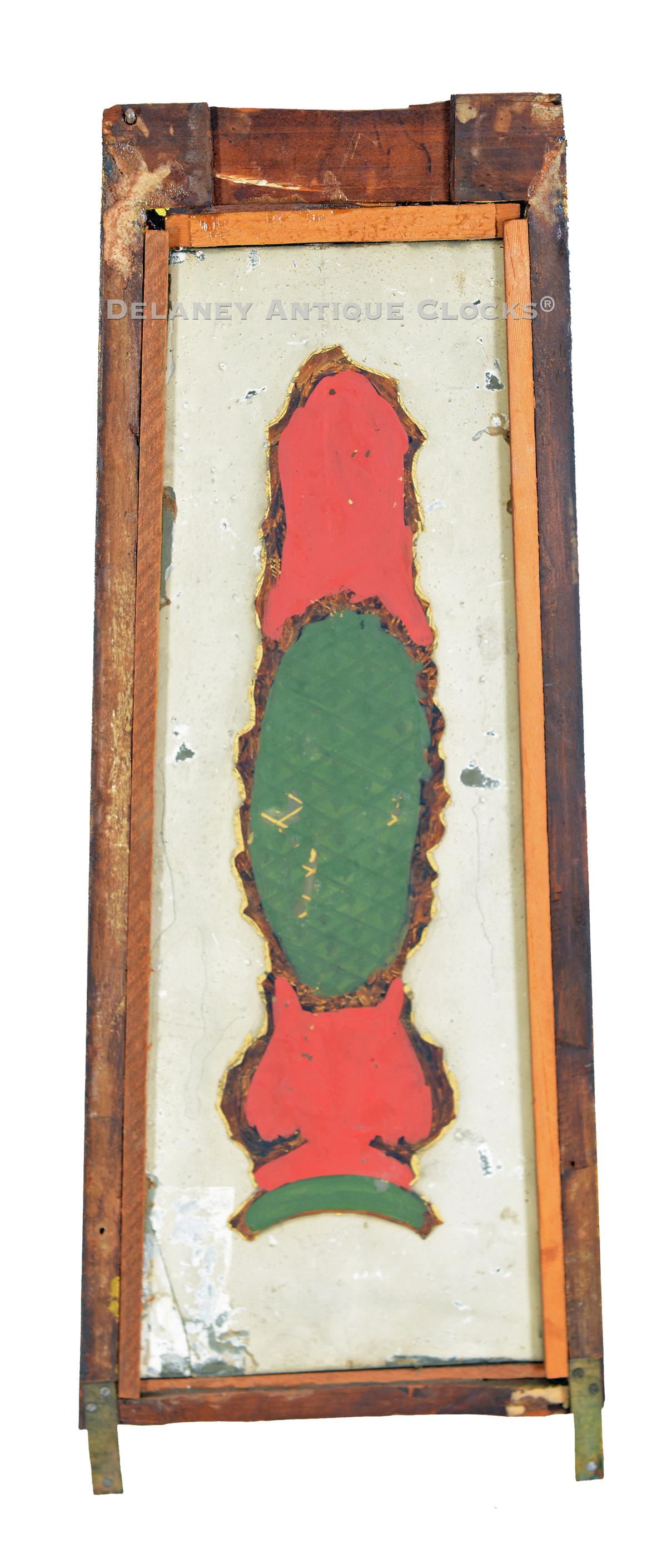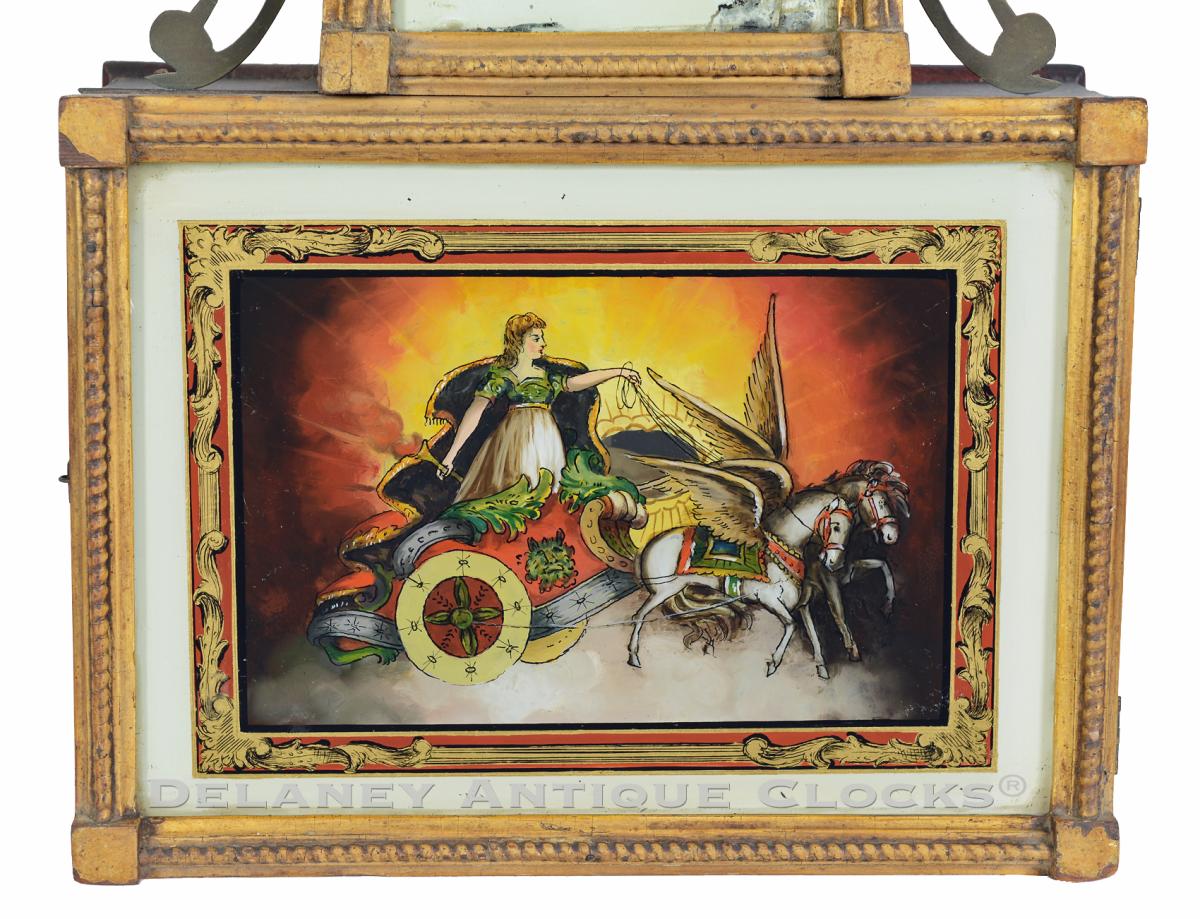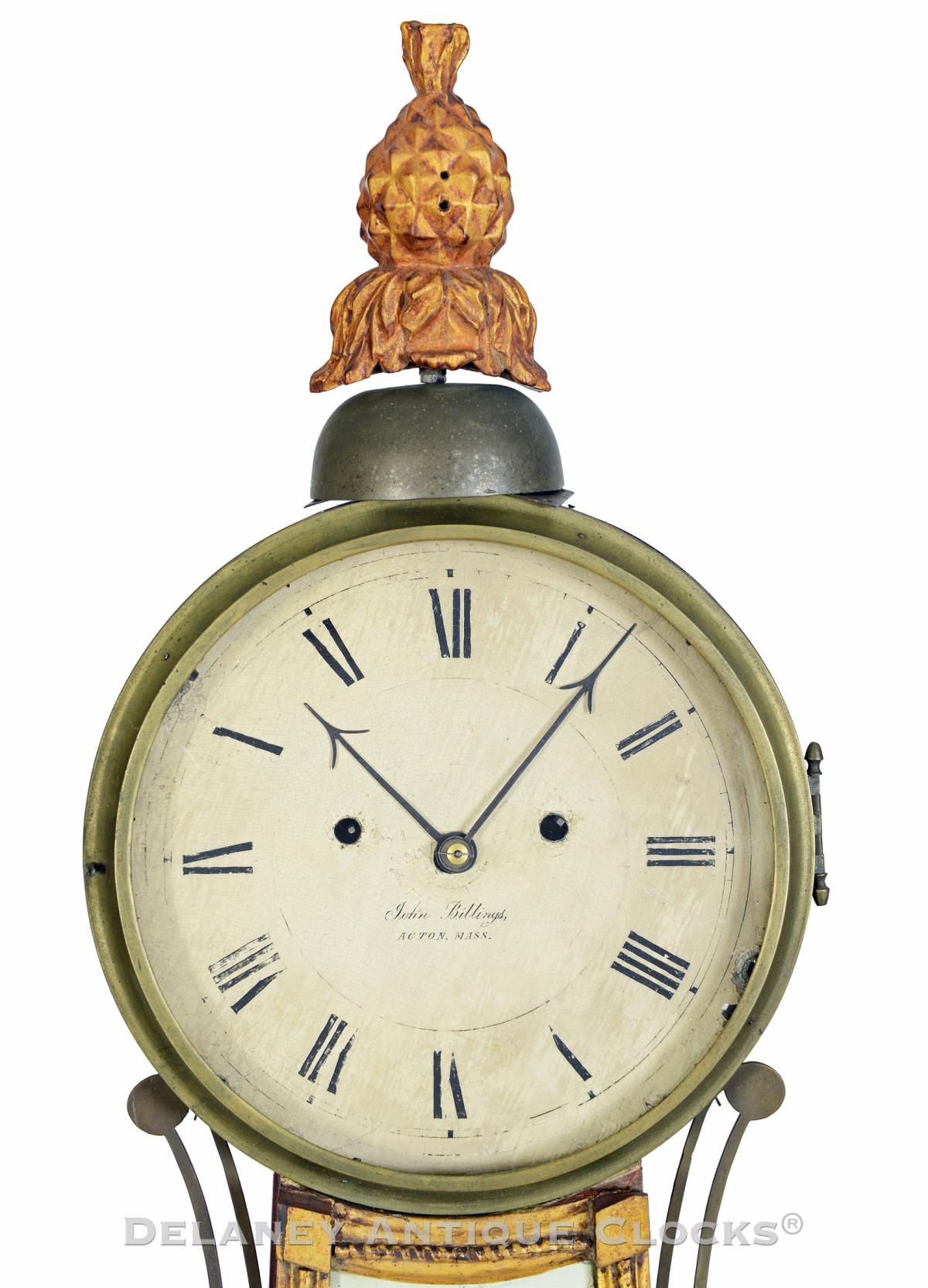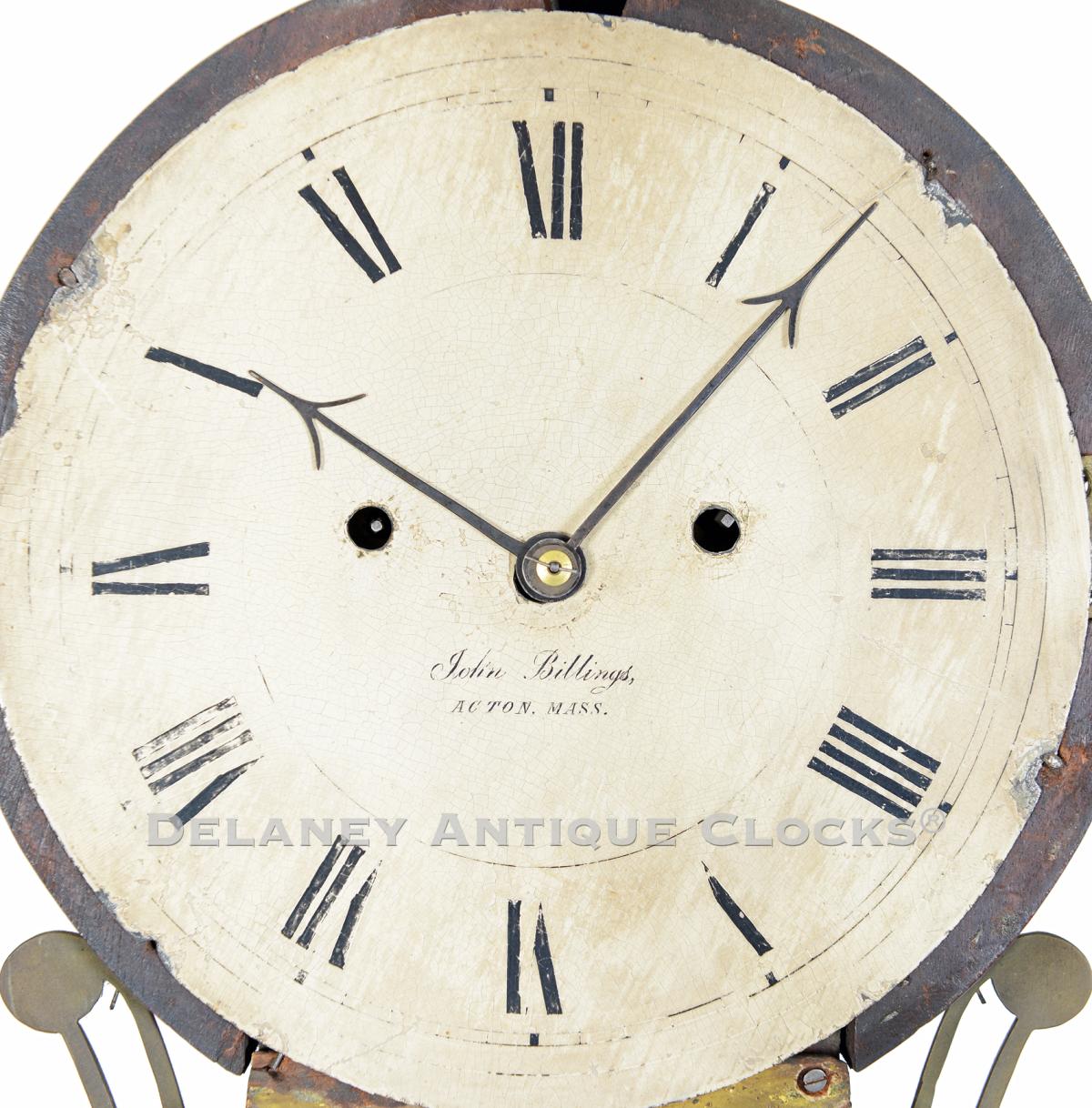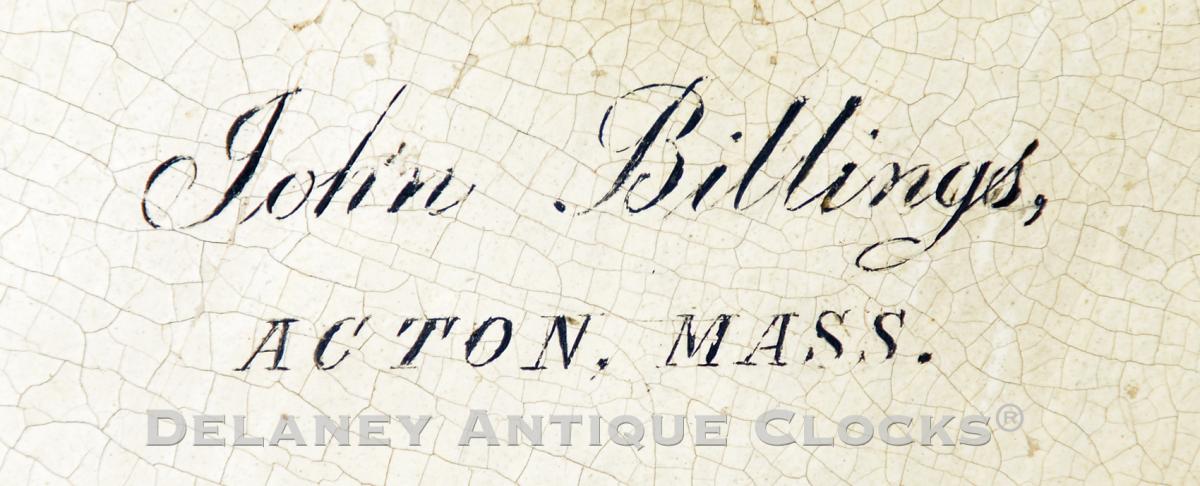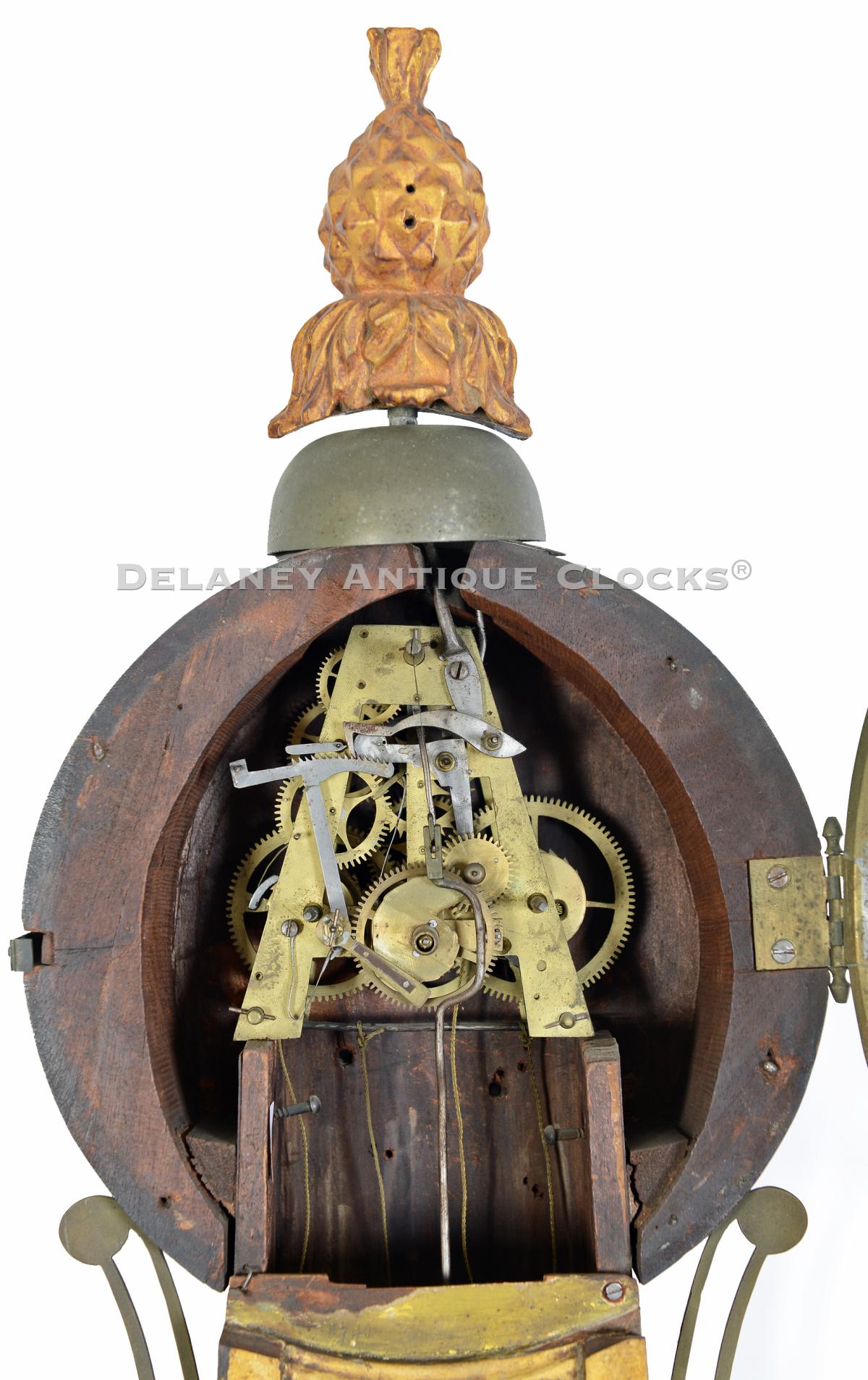Jonathan Billings of Acton, Massachusetts. A full striking banjo clock. 224076.
Full-striking banjo clocks are difficult to find in today's marketplace. We see very few of these on an annual basis. They were costly as compared to the simpler timepiece versions.
Striking banjo clock cases are slightly larger than the standard timepiece versions of the form. This is to accommodate the additional strike train and drive weight. This clock measures 39 inches long. The lower box is 11.5 inches wide. The mahogany case features gilt rope frames, cast brass sidearms, a dial bezel, a bell mounted on top of the head, and an interesting carved wooden finial. The gilding has some age but is not original to this clock. The frames support reverse-painted tablets. These colorful tablets are painted from the back in appropriate subjects. The lower tablet is an old replacement. It is of excellent quality and depicts "AURORA," the Roman goddess of dawn. Aurora, also known as Eos, traveled across the sky each dawn to overcome the night in her chariot drawn by a pair of white-winged horses. Her daily route began each morning in the east, and she traveled west across the sky. She opened the gates of the day. She is poised with her left arm in an outstretched position, holding the reins and in control. In her right hand, she has a torch. The small oval-shaped opening in the center allows one to view the motion of the brass-faced pendulum bob that swings behind the glass. The sun's radiants extend from the oval out into the heavens. The throat tablet is original to this clock. It is decorated with traditional timepiece themes. The colors used here complement those used in the lower tablet. This tablet is cracked in the lower right corner. Brass sidearms are attached to the sides of the case. At the top is the carved wooden finial and the bell. This is an unusual presentation.
The iron dial is original to this clock and measures 8.75 inches in diameter. The closed-segmented minute ring features Roman-style hour numerals. "John Billings, / ACTON, MASS." is signed below the center arbor, from which the Arrow pointer hands are mounted. The dial is protected by glass fitted into the brass bezel.
Behind the dial is the distinctively shaped brass-made eight-day time and strike movement. The plates are an A-frame shape and have been aggressively skeletonized to conserve brass. They support the steel shafts, brass gearing, recoil escapement, and rack-and-snail striking arrangement. This clock strikes each hour on the bell mounted above the case. The works are weight-powered. The lead drive weights descend side-by-side below the works through the throat of the case. This movement is supported by the sides of the case that extend into the head of the case. It is also mounted to the back of the case with three screws. The steel pendulum rod supports a brass-faced bob. The pendulum tie-down is in place.
This clock was made circa 1820.
Please read Paul J. Foley's book Willard's Patent Time Pieces for more information about wall timepieces.
Inventory number 224076.
The Acton and Concord, Massachusetts Clockmaker Jonathan Billings was born in 1777 and died in Acton on February 13, 1841. It is not currently known who trained him, and a significant number of the movements that he made do not resemble the work of other local Makers. The movement plates he designed in a number of his clocks feature a very unusual shape. They are often oversized and aggressively skeletonized. A high percentage of his wall clocks are striking clocks. These movements feature both countwheel and rack and snail striking systems. In 1818, while working in the village of Acton, he advertised himself as a watchmaker. In 1821, he moved to Concord and is working on the Milldam from 1822 through 1823. This is interesting to note because many other clockmakers were also working there. It appears that Billings stayed in Concord until he died in 1841. Billings is known to have made Patent Timepieces, striking banjo clocks, several Girandole clocks, and tall case clocks.
For more information regarding wall timepieces, please read Paul J. Foley’s book, “Willard’s Patent Time Pieces.”

